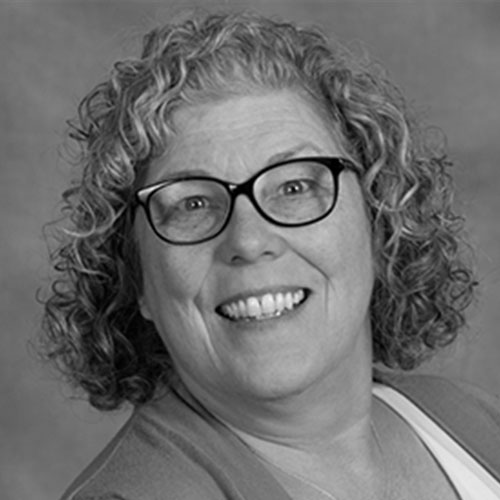Since the pandemic changed the world — and the lives of medical-surgical nurses administering acute care in hospitals throughout the United States — the Academy of Medical-Surgical Nurses (AMSN) has worked tirelessly to support a membership that found itself stressed, overwhelmed, and exhausted by a healthcare crisis of historic proportions. CEO Terri Hinkley, Ed.D., M.B.A., BScN, RN, CAE, speaks to their efforts.

Terri Hinkley, Ed.D., M.B.A., B.Sc.N., RN, CAE
CEO, Academy of Medical-Surgical Nurses (AMSN)
With the demands of the COVID-19 pandemic falling on their shoulders, how are today’s medical-surgical nurses carrying on in their patient-first mission of care?
The nursing community is still pushing forward through the pandemic. COVID is not gone, and hot spots continue throughout the country. Medical-surgical nurses, and all nurses, continue to care for patients with COVID, and it continues to take its toll on healthcare professionals. It has been a very challenging two years for medical-surgical nurses. They have seen the devastation first-hand. They have had to try and help patients and families, unable to be together due to visitor restrictions, manage a very uncertain and frightening illness, where the death toll was devastating. Nurses initially lacked essential personal protective equipment and supplies, and they were also juggling upheaval in their own lives with schools shutting down and businesses transitioning to virtual work environments. It was incredibly stressful, yet medical-surgical nurses showed up day after day and did what they always do so very well: care for those that needed them at the worst and most vulnerable times of their lives.
According to the United States Registered Nurse Workforce Report Card and Shortage Forecast: A Revisit, published in the May/June 2018 issue of the American Journal of Medical Quality, a shortage of registered nurses is projected to spread across the country between 2016 and 2030. The nursing community today is already burned out and exhausted, with countless demands on nurses in the medical-surgical specialty in particular. What is needed, and what we hope will be the direction forward, is understanding for the demands on today’s nurses — and the commitment to continue advancing clinical best practices to support the career path of nursing as a whole.
What new strides is AMSN taking in advancing medical-surgical nursing career pathways?
Over the last two years, AMSN has invested heavily in professional education for our medical-surgical nurses. We are particularly proud of two products recently launched to support our members and the patients they serve. Earlier this year, AMSN developed the first-ever validated competency framework for medical-surgical nursing. It is a comprehensive assessment that covers three dimensions: individual attributes, practice competencies, and outcome measures, and it’s measured across three proficiency levels.
The framework helps both individuals and organizations measure outcomes with actionable insights and benchmarking capabilities. The knowledge gained from the competency framework will assist nurses in navigating their career path in medical-surgical nursing, and aid institutions in making informed decisions and adapting strategies to achieve better outcomes for their patients, organizations, and nurses.
AMSN also launched its Elevate Series, a series of assessment-based certificate programs. These programs provide deep education and learning in specific subject matters and then validate learning through the completion of a psychometrically validated test to measure mastery of the subject matter. These programs are designed to provide the education medical-surgical nurses need when they need it. Current courses include clinical leadership, behavioral health and diversity, and equity and inclusion in healthcare.
How is AMSN recognizing healthcare organizations in support of the demanding specialty that is medical-surgical nursing?
AMSN earlier this year named Cleveland Clinic, Cleveland, OH, as the first recipient of our new Kathleen Singleton Award, which recognizes leading healthcare institutions that provide exemplary support to medical-surgical nursing units.
Cosponsored by Medtronic, Inc., the new annual award launched this year to recognize facilities that demonstrate an outstanding record of promoting a healthy workplace environment that fosters a patient-first philosophy. The award is named in honor of Kathleen Singleton, MSN, APRN-CNS, CMSRN, who served as AMSN president from 2008 to 2010 and is one of the association’s most dedicated and respected leaders — a visionary voice for the medical-surgical nurse specialty. Singleton practiced at the Cleveland Clinic for 27 years. Cleveland Clinic was chosen for its robust support of nursing education and clinical competency, and for fostering respectful nurse-nurse, nurse-physician, and interprofessional collaborations.
What do you hope to see in continued support of the specialty of medical-surgical nursing?
One of the things that we know about healthcare, and I think it’s vital to recognize, is that healthcare is a system; it is an environment in which individuals work with other individuals and within teams. These individuals and teams, these fast-moving nursing units, are often called upon to work long, strenuous hours in the support of their mission: to provide superior care to those in the most acute of health crises.
Our hope is that, with this recognition, today’s leading healthcare organizations, including hospitals and major healthcare institutions, will support the medical-surgical nursing practice by providing healthy, collaborative, and effectively structured working environments. Safe working environments for nurses, with processes in place for best practices, result in safe patient care outcomes. Medical-surgical nurses carry patient care on their shoulders, but they cannot do it alone.

